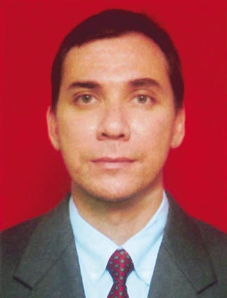
"In order to enhance our operations, we also implement 'PRIDE,' which means Passion; Respect; Integrity; Discipline and Excellence."
棗Mr. Untung Yusuf
Seeking to stay one step ahead of its rivals, Indonesia- based PT Bakrie Pipe Industries (BPI) has succeeded in positioning itself as a leader in steel pipe production, both in the domestic and international market. Mr. Untung Yusuf, Chief Commercial Officer, shared with International Metalworking News for Asia (IMNA) the company's prudent strategies to stay on top of its opponents. IMNA: Kindly give a brief history of your company Yusuf: PT Bakrie Pipe Industries is owned by Bakrie & Brothers Group along with two other manufacturing pipe subsidiaries, PT Seamless Pipe Industri Jaya, and PT Southeast Asia Pipe Industry. BPI has an annual production capacity of 310 metric tons of pipes. About 80% of the company's total output is for the local demand, while the remaining 20% goes to the foreign market. IMNA: What are your main products? Explain the process you use. Yusuf: Our main products are electric resistance welding (ERW) steel pipes used in oil, gas and non-oil gas water pipelines, constructions, and general purpose sectors. Our manufacturing process is divided into two sections: tube mill and finishing sections and a series of inspection processes. Tube Mill Sections: The pipe production process starts by placing the hot rolled coil (HRC) that has passed the receiving coil inspections into the uncoiller machine to uncoil, leveling, shearing and join coils. Then followed by ultrasonic test to check for plate lamination, side trimmer & edge scarfing process. Forming unit to form the strip to round. Welded using high-frequency welding machine, inner/outer weld enforcements scraping. Ultrasonic test online to check for weld seam defects, weld seam heat treatment, air & water cooling, sizing unit to round and strengthen the pipes, and visual & dimensional inspections of each pipes. Finishing Sections: Finishing line process begins from beveling followed by hydrostatic test, ultrasonic testing offline, final inspections which include diameter, thickness, length, straightness, and other dimensional testing, and finally pipe marking & pipe varnish as per customer requirement for each pipes. Inspections: The destructive tests carried out in production line include flattening and hydrostatic test. The non-destructive tests carried out to check for weld defects in the pipes using ultrasonic offline test for weld seam and pipe ends laminations, eddy current test, magnetic particle test, dye penetrant test and ultrasonic manual test. Other tests carried out in our in-house laboratory are: tensile test, charpy impact test, hardness test, metallographic test and bursting test. The advantage of using high-frequency welding is a clean environment. IMNA: Any obstacles and challenges your company had to overcome? Yusuf: Here in Indonesia, steel industries depend on the policies of other steel producers in China and Eastern Europe. With the aggressive expansions going on, a huge amount of raw materials are needed. This situation affects the supply of raw materials for local steel industries. We had to overcome issues, such as local regulation, low-priced imported products, big market and steel consumption per capita. The regulations that have been applied at the moment only cover the upstream steel industries and none for downstream steel industries like pipes. Imported steel pipes are sold very low, since these importers are supported by their government. China for example has tax rebate schemes from their government. Indonesia is a developing country and our infrastructure including oil and gas fields are not yet explored. Our country is still at a low-level in terms of steel consumption per capita compared to well-developed countrAir Jordan Trainer Essential













